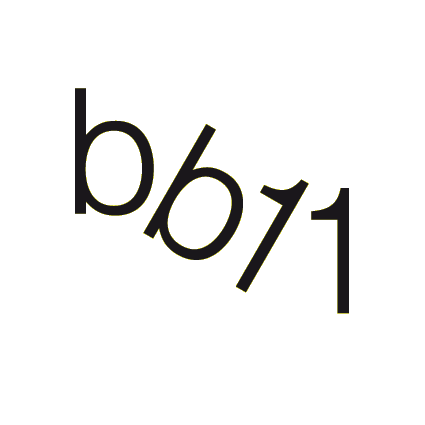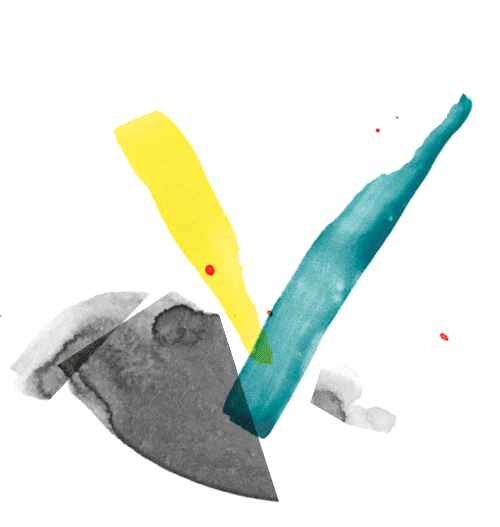

Sign up for our newsletters. You can change the settings or unsubscribe at any time.
Thank you for your subscription. We have sent you an e-mail with a confirmation link.


exp. 1
exp. 2
exp. 3

Deanna Bowen
Venue: Gropius Bau
Deanna Bowen
Born 1969 in Oakland, US – lives and works in Toronto, CA
Deanna Bowen’s auto-ethnographic, interdisciplinary practice deconstructs historical records to reveal the racialized undertones of contemporary North American cultural identity. A descendant of African Americans who migrated north in the Jim Crow era to escape persecution, Bowen has used her own genealogy in a number of recent works to reconstruct certain episodes of Canadian history that have been marginalized in conventional accounts of tolerance and diversity. For example, her work 1911 Anti-Creek Negro Petition (2013) uncovers the discrimination African Americans faced once they reached the border, along with the collective effort to block their influx in the form of a petition signed by many influential individuals. Archival materials sourced for this work reveal one of these signatures as belonging to Professor Barker Fairley, a champion of the so-called Group of Seven painters whose uninhabited landscapes helped define both a regional painterly tradition and national identity, while erasing the territorial disputes that threatened white hegemony.
Bowen’s research on Fairley led her to the digital archives of the University of Toronto’s Hart House, where she chanced upon the script for the 1922 play The God of Gods written by theater director Carroll Aikins, featuring a caricatured cast of Indigenous characters originally performed by white actors. In the resulting installation, The God of Gods: A Canadian Play (2019/20), Bowen employs archival images and documents to visualize the networks of powerful individuals whose political and cultural influence guaranteed the suppression of non-whiteness in Canadian life. An accompanying film shows a conversation between Bowen and Indigenous artists and writers John G. Hampton, Peter Morin, Lisa Myers, Archer Pechawis, and cheyanne turions that debates the (im)possibility of reenacting the play in a contemporary setting.
Michèle Faguet
Transcript: Deconstructing God of Gods
Glossary of Common Knowledge
L’Internationale Online
Glossary
Freiheit für Chile!
Anonymous
Photo album
Hatred Among Us
Lisette Lagnado
Essay
Género y colonialidad en busca de claves de lectura y de un vocabulario estratégico descolonial
Rita Segato
Essay
#fight4rojava
Graffiti
El primer nueva corónica y buen gobierno
Felipe Guamán Poma de Ayala
Chronicle
By using this website you agree to the use of cookies in accordance with our data privacy policy.

Deanna Bowen
Venue: Gropius Bau
Deanna Bowen
Born 1969 in Oakland, US – lives and works in Toronto, CA
Deanna Bowen’s auto-ethnographic, interdisciplinary practice deconstructs historical records to reveal the racialized undertones of contemporary North American cultural identity. A descendant of African Americans who migrated north in the Jim Crow era to escape persecution, Bowen has used her own genealogy in a number of recent works to reconstruct certain episodes of Canadian history that have been marginalized in conventional accounts of tolerance and diversity. For example, her work 1911 Anti-Creek Negro Petition (2013) uncovers the discrimination African Americans faced once they reached the border, along with the collective effort to block their influx in the form of a petition signed by many influential individuals. Archival materials sourced for this work reveal one of these signatures as belonging to Professor Barker Fairley, a champion of the so-called Group of Seven painters whose uninhabited landscapes helped define both a regional painterly tradition and national identity, while erasing the territorial disputes that threatened white hegemony.
Bowen’s research on Fairley led her to the digital archives of the University of Toronto’s Hart House, where she chanced upon the script for the 1922 play The God of Gods written by theater director Carroll Aikins, featuring a caricatured cast of Indigenous characters originally performed by white actors. In the resulting installation, The God of Gods: A Canadian Play (2019/20), Bowen employs archival images and documents to visualize the networks of powerful individuals whose political and cultural influence guaranteed the suppression of non-whiteness in Canadian life. An accompanying film shows a conversation between Bowen and Indigenous artists and writers John G. Hampton, Peter Morin, Lisa Myers, Archer Pechawis, and cheyanne turions that debates the (im)possibility of reenacting the play in a contemporary setting.
Michèle Faguet
Transcript: Deconstructing God of Gods
III: La familia son quiénes se alegran con nuestros actos diarios. Detrás de las curadoras de la XI
María Berríos, Agustín Pérez Rubio
Conversation
Touching Feeling. Affect, Pedagogy, Performativity
Eve Kosofsky Sedgwick
Monograph
A Moment of True Decolonization / Episode #6: Sinthujan Varatharajah. Constructing the Tamil Eelam State
The Funambulist / Sinthujan Varatharajah
Podcast
THE MOBILIZATION
Nicolás Cuello
Text
Glossary of Common Knowledge
L’Internationale Online
Glossary
Maternidades subversivas
María Llopis
Monograph
By using this website you agree to the use of cookies in accordance with our data privacy policy.

Deanna Bowen
Venue: Gropius Bau
Deanna Bowen
Born 1969 in Oakland, US – lives and works in Toronto, CA
Deanna Bowen’s auto-ethnographic, interdisciplinary practice deconstructs historical records to reveal the racialized undertones of contemporary North American cultural identity. A descendant of African Americans who migrated north in the Jim Crow era to escape persecution, Bowen has used her own genealogy in a number of recent works to reconstruct certain episodes of Canadian history that have been marginalized in conventional accounts of tolerance and diversity. For example, her work 1911 Anti-Creek Negro Petition (2013) uncovers the discrimination African Americans faced once they reached the border, along with the collective effort to block their influx in the form of a petition signed by many influential individuals. Archival materials sourced for this work reveal one of these signatures as belonging to Professor Barker Fairley, a champion of the so-called Group of Seven painters whose uninhabited landscapes helped define both a regional painterly tradition and national identity, while erasing the territorial disputes that threatened white hegemony.
Bowen’s research on Fairley led her to the digital archives of the University of Toronto’s Hart House, where she chanced upon the script for the 1922 play The God of Gods written by theater director Carroll Aikins, featuring a caricatured cast of Indigenous characters originally performed by white actors. In the resulting installation, The God of Gods: A Canadian Play (2019/20), Bowen employs archival images and documents to visualize the networks of powerful individuals whose political and cultural influence guaranteed the suppression of non-whiteness in Canadian life. An accompanying film shows a conversation between Bowen and Indigenous artists and writers John G. Hampton, Peter Morin, Lisa Myers, Archer Pechawis, and cheyanne turions that debates the (im)possibility of reenacting the play in a contemporary setting.
Michèle Faguet
Transcript: Deconstructing God of Gods
I: Junto a las curadoras de la XI Berlin Biennale for Contemporary Art
Renata Cervetto, Lisette Lagnado
Conversation
#fight4rojava
Graffiti
A Moment of True Decolonization / Episode #6: Sinthujan Varatharajah. Constructing the Tamil Eelam State
The Funambulist / Sinthujan Varatharajah
Podcast
THE MOBILIZATION
Nicolás Cuello
Text
Touching Feeling. Affect, Pedagogy, Performativity
Eve Kosofsky Sedgwick
Monograph
New Look
Flávio de Carvalho
Performance
By using this website you agree to the use of cookies in accordance with our data privacy policy.

Deanna Bowen
Venue: Gropius Bau
Deanna Bowen
Born 1969 in Oakland, US – lives and works in Toronto, CA
Deanna Bowen’s auto-ethnographic, interdisciplinary practice deconstructs historical records to reveal the racialized undertones of contemporary North American cultural identity. A descendant of African Americans who migrated north in the Jim Crow era to escape persecution, Bowen has used her own genealogy in a number of recent works to reconstruct certain episodes of Canadian history that have been marginalized in conventional accounts of tolerance and diversity. For example, her work 1911 Anti-Creek Negro Petition (2013) uncovers the discrimination African Americans faced once they reached the border, along with the collective effort to block their influx in the form of a petition signed by many influential individuals. Archival materials sourced for this work reveal one of these signatures as belonging to Professor Barker Fairley, a champion of the so-called Group of Seven painters whose uninhabited landscapes helped define both a regional painterly tradition and national identity, while erasing the territorial disputes that threatened white hegemony.
Bowen’s research on Fairley led her to the digital archives of the University of Toronto’s Hart House, where she chanced upon the script for the 1922 play The God of Gods written by theater director Carroll Aikins, featuring a caricatured cast of Indigenous characters originally performed by white actors. In the resulting installation, The God of Gods: A Canadian Play (2019/20), Bowen employs archival images and documents to visualize the networks of powerful individuals whose political and cultural influence guaranteed the suppression of non-whiteness in Canadian life. An accompanying film shows a conversation between Bowen and Indigenous artists and writers John G. Hampton, Peter Morin, Lisa Myers, Archer Pechawis, and cheyanne turions that debates the (im)possibility of reenacting the play in a contemporary setting.
Michèle Faguet
Transcript: Deconstructing God of Gods
Memorial to the Sinti and Roma Victims of National Socialism
Dani Karavan
Memorial
Being in Crisis together – Einander in Krisen begegnen
Feminist Health Care Research Group (Inga Zimprich/Julia Bonn)
Online workshop
#fight4rojava
Graffiti
St Sara Kali George
Delaine Le Bas
Soundscape
Fragments of the Artist’s Diary, Berlin 11.2019–1.2020
Virginia de Medeiros
Diary
Undocumented Rumours and Disappearing Acts from Chile
María Berríos
Essay
By using this website you agree to the use of cookies in accordance with our data privacy policy.
By using this website you agree to the use of cookies in accordance with our data privacy policy.




